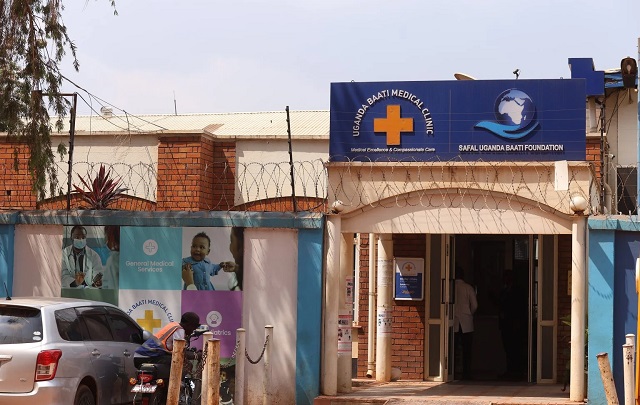
OPINION | George Mubiru | Uganda’s healthcare system has made notable progress over the years, but it continues to face significant challenges, especially in rural areas. Many public health facilities remain under- resourced, often struggling with shortages of essential medicines, limited diagnostic equipment, and inadequate staffing to handle the growing demand for both disease treatment and preventive care. This situation has created an urgent need for non-state actors—particularly the private sector—to play a more active role in supporting healthcare delivery, not just as donors, but as key partners invested in the nation’s health and stability.
Corporate organizations with a strong presence across Uganda are uniquely positioned to drive positive change in the health sector. By integrating healthcare initiatives into their corporate social responsibility (CSR) strategies, companies can directly address the pressing health challenges faced by the communities in which they operate.
In recent years, several companies have demonstrated the impact of private-sector involvement in healthcare. Firms like MTN Uganda, Stanbic Bank, and Coca-Cola Beverages Africa have supported initiatives ranging from financing cancer wards and blood donation drives to organizing community wellness programs. These efforts highlight a shifting perspective: healthcare is no longer seen as the sole responsibility of government or non-profit organizations. Instead, the private sector is increasingly stepping up as a vital part of the solution.
At Safal Uganda Baati Foundation, we view health as a critical investment in Uganda’s human capital. To this end, we have established two healthcare clinics in Kampala and Tororo that provide primary care, diagnostic services, counseling, psychosocial support, HIV testing, immunization, and ongoing health education. In the past year alone, these facilities served more than 3,500 individuals, many of whom would otherwise have faced long and costly journeys—or missed care altogether.
Beyond our static clinics, we operate mobile health outreach programs that bring essential services directly to underserved communities. Each week, these outreaches reach between 100 and 160 people, offering care to those living in areas where health infrastructure is limited and resources are scarce.
However, building clinics and running outreach programs is just one part of the solution.
Advocacy and public engagement are equally important in fostering lasting change. By participating in national campaigns such as the Kabaka Birthday Run for HIV eradication, malaria prevention drives, and the Rotary Cancer Run, we amplify awareness of key health issues and mobilize resources to support national health goals. When corporations collaborate on such initiatives, they create a ripple effect—normalizing conversations around health while pooling resources to achieve more than any single entity could alone.
Behind every statistic and program is a deeply human story. For a mother in Tororo who no longer has to walk five kilometers to get her child immunized, or for an employee whose early diagnosis of a lifestyle disease saves their life, access to healthcare is transformative. It restores dignity, renews hope, and strengthens families and communities.
Looking ahead, the private sector must go beyond viewing health interventions as acts of goodwill. They should be recognized as strategic investments in Uganda’s workforce and future prosperity. Strengthening partnerships between corporations, government agencies, and non- profits will be essential to scaling these efforts in a sustainable way. This also means advocating for policies that support improved healthcare delivery and leveraging innovation through digital health solutions, mobile clinics, and workplace wellness programs to reach more people effectively.
At Safal Uganda Baati Foundation, we know there is still much work to be done. While we do not have all the answers, we are committed to being part of the solution. Building healthier communities is not just a moral imperative; it is also key to creating a stronger economy and a more stable future for everyone. The need is urgent, and the time to act collectively is now.
***
 The writer is the Manager, Safal Uganda Baati Foundation
The writer is the Manager, Safal Uganda Baati Foundation
 The Independent Uganda: You get the Truth we Pay the Price
The Independent Uganda: You get the Truth we Pay the Price






This is a really insightful post! The way you explained the topic makes it easy to understand and apply. Looking forward to more of your valuable content in the future.